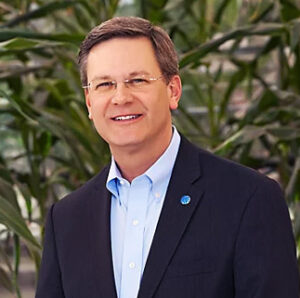Corteva Agriscience has announced the winners in its 2021 Climate Positive Leaders Program. The nomination-based initiative showcases innovative farmers and ranchers from around the world who are successfully implementing, scaling and sharing climate positive practices.
Representing the United States, Australia, Brazil, Canada and Kenya, the winning farmers have adopted a wide range of innovative systems and approaches that uniquely support their productivity goals whilst protecting the land and water in the environment around them.
US winner Ryan Speer knows exactly why he has taken steps to introduce sustainable farming practices saying “I took the stance I didn’t ever want to see soil blowing or washing away again, or as little as possible, so we have made these changes because it is good for us and the environment.”
Kenya’s Felix Kili has seen the benefits of a climate positive approach. “We believe for any farmer to continue producing good quality and high yielding crops, one has to embrace climate smart farming, technology and environmentally friendly practices. Over the years, we have seen the impact of climate change first-hand through improved yields with the extra moisture we conserved.”
Farmers were nominated by regional third-parties including grower groups, non-profit organizations, universities or other technology assistance partners, and were judged on program criteria by a panel of agriculture industry leaders in agribusinesses and academia.
The 2021 Climate Positive Leaders Program winners are:
Jake Ryan (Australia) – a mixed cropping/livestock producer in Manjimup, Western Australia, using holistic grazing, minimal tillage, cover cropping, and mineral nutrition to produce a wide variety of winter vegetables, cereal and oilseed commodity crops, ewes for wool and lamb production, first cross Angus Friesian heifers, and pasture-raised laying hens.
Charles Peeters (Brazil) – a farmer in Montividiu, Goiás State, Brazil, who uses no-till with a plant nutrient and soil coverage management system for rotational soybeans, corn, and cattle.
Abilio Rodrigues Pacheco (Brazil) – a farmer and forestry researcher in Cachoeira Dourada, Goiás State, Brazil, who has implemented an integrated crop, livestock and forestry system to produce soybeans, corn, millet, eucalyptus trees, grass, and beef cattle.
Kristjan Hebert (Canada) – a farmer in Fairlight, Saskatchewan, who applies no till, variable rate input management, cover and rotational cropping to produce canola, fall rye, malt barley, hard red spring wheat, oats, and peas.
Felix Kili (Kenya) – a farmer in Eldoret, Rift Valley, Kenya, using minimal tillage and crop residue preservation techniques that retain moisture for primary crops including maize, barley, wheat, and oilseed rape, as well as cover crops such as sun hemp, sunflower, and canola.
Ryan Speer (USA) – a farmer in Sedgwick, Kansas, who produces corn, beans, milo, wheat, cotton, and cover crops, ensuring there is a living root in all acres 365 days a year to prevent soil erosion.
Bill Couser (USA) – a farmer in Nevada, Iowa, who grows commercial corn, soybeans, alfalfa, sorghum, and oats, and works with state universities, technology innovators and equipment manufacturers to leave more nutrients in the field.
Brad Clark (USA) – a row crop and dairy cow producer in Bagley, Wisconsin, who has implemented never-till, block planting and perennial vegetation practices to raise soybeans, barley, rye, and wheat as commodity crops, and corn and alfalfa as cattle feed.
Harold Grall (USA) – a farmer in Dumas, Texas, managing irrigated and dryland acres producing corn, grain sorghum and wheat with very limited tillage to preserve residue along with water conservation measures to protect the Ogallala Aquifer.
The nine winners will each receive:
- Lifetime membership in the Global Farmer Network
- Engagement with other early adopters and Global Farmer Network leaders
- Leadership and communications training to support farmers as they share their experiences, including:
- Participation in an upcoming Global Farmer Network Roundtable & Leadership Training program
- Support in development of a personal virtual farm tour to communicate their climate positive journey
- Soil sampling, carbon sequestration measurement, and guidance from Dr. Rattan Lal and team at the CMSAC
- Interaction with business, research, agronomy, and agriculture leaders plus the opportunity to share success across Corteva’s global platform

“I am pleased to recognise and honour these farmers who have clearly demonstrated that sustainability does not come at the expense of profit or productivity.” said James C. Collins, Jr., Chief Executive Officer, Corteva Agriscience. “They have made a measurable impact in advancing climate positive agriculture and I welcome the opportunity to share their stories for the benefit of farmers and all food system stakeholders around the world.
“Even before Corteva Agriscience introduced the concept of climate positive agriculture at the World Food Prize Borlaug Dialogue in 2018, we have worked diligently to provide the innovative seed, crop protection, digital technology and agronomic expertise our farmers need to successfully adopt sustainable on-farm practices.”


